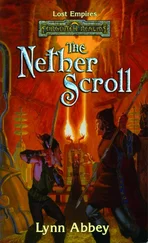He did not receive a direct refusal, but constant evasive replies made him realize that permission either would not be granted or would be given too late for him to arrive at the temple before the first day of the festival. He decided to take matters into his own hands and put on the disguise that he had worn with Muto Kenji: the old, unmarked traveling robe and the sedge hat; he wrapped Jato’s hilt in sharkskin, took a small pouch of food and a string of coins, crossed the river at night by the fish weir, and began to walk through the mountains.
If anyone challenged him, he had decided he would say he was on a pilgrimage to one of the remote shrines in the mountains to the south of Hagi, but no one seemed to suspect his identity. The months after the battle had seen many masterless or dispossessed warriors crossing the Three Countries, making their way home or seeking refuge in the forest, often resorting to petty banditry to survive. He realized his face and person were not known; people did not recognize him. When they had looked at him before, they had seen not him, the individual, but the heir to their clan. Now that he no longer traveled with all of the trappings of Lord Otori, he was invisible. It was both a shock and a relief.
Many people traveled with their faces hidden, wrapped in scarves or concealed beneath conical hats like his. He walked, seemingly deep in his thoughts, as impenetrable as any black covering, but studying the land as he passed through it, taking note of the state of the rice fields, the management of the forests, the fields cut from the mountainside where villagers grew vegetables, fenced with stakes against wild boars. It was high summer, the rice fields brilliant green, the forests deep and shaded, sonorous with the strident cicadas, the air heavy and humid. The forest echoed with birdsong and the sound of insects; and every night the cries of frogs rang from the dikes and pools.
He kept away from the high roads, following steep narrow tracks, getting lost from time to time but always continuing south, until he came to the hut where he had spent the summer with Matsuda. He arrived at dusk, startling the tanuki, which dived under the veranda, and spent the night in the hut. It seemed to have been closed for some time: the air was musty, the embers in the fine gray ash long cold. It was filled with memories for him, of Matsuda’s teaching, of Miura’s death, of the fox-spirit who had become a friend called Muto Kenji; he ate the last of the food he had brought with him and then sat in meditation on the veranda while the starry vault of the sky wheeled above him and the tanuki went out on its nighttime prowling; when it returned just before dawn, Shigeru also retired inside the hut and slept for a few hours. He awoke refreshed, feeling somehow more whole than he had for months, breakfasted on spring water, and resumed the last stage of his journey.
In the middle of the day, he rested for a while beneath the massive oak where he had seen the houou. He could still recall, clearly imprinted in his mind, its white feather, tipped with red. Matsuda had spoken to him then of death, of choosing the right path toward making his death significant-but now he was still alive when so many had died; had he made the right choice? Or would the result of his actions simply be to drive the houou away from the Middle Country, never to return?
There was no sign of the warriors who Kitano had said were surrounding the temple-maybe when the surrender treaty was signed they had all returned to Yamagata, its many inns and beautiful women, or had gone home to Tsuwano to prepare for the harvest. Nevertheless, despite the apparent peace and tranquillity of the temple, the serene curve of the roofs against the deep green of the forest, the white doves fluttering around the eaves, endlessly croo-crooing, Matsuda Shingen could not hide his concern at Shigeru’s arrival. Shigeru had just walked into the main courtyard and spoken to one of the monks raking the gravel and sweeping the paths-the temple was not fortified at that time, and the main gate was kept open from dawn to midnight. The monk, mistaking him for an ordinary traveler, had directed him to the guest rooms. It was only when Shigeru removed the hat he wore and asked to speak to the Abbot that he was recognized and taken at once to Matsuda’s office. He knelt before the old man, but Matsuda rose, stepped swiftly toward him, and embraced him.
“You have come alone, in these clothes? It is hardly safe for you. You must know what danger you are in.”
“I felt I had to celebrate the Festival of the Dead in this place,” Shigeru said. “This year above all I must honor my father’s spirit and those of the fallen.”
“I will show you where Lord Shigemori’s ashes were buried. But first let me call your brother. You must long to see him.” Matsuda clapped his hands, and when the monk who had escorted Shigeru reappeared, he asked him to fetch Takeshi.
“Is he well?” Shigeru asked.
“Physically he’s in good health-excellent. But since the news of the defeat and your father’s death, he has been very disturbed-angry and defiant. He has threatened to run away several times. For his own safety, I try to keep a close watch on him, but the constant supervision irks him.”
“In other words, he has become very difficult,” Shigeru said. “I will take him off your hands. He must return to Hagi.”
“Lord Kitano has offered to send an escort,” Matsuda said. “But Takeshi refuses to go with him, saying he does not keep company with traitors.”
“I have been concerned that Kitano might attempt to delay him in Tsuwano, thus turning him into a hostage,” Shigeru said. “I would prefer to take him back with me.”
“But then your journey would be revealed to everyone,” Matsuda warned him.
“My journey was not sanctioned by my uncles, but it was completely justifiable,” Shigeru replied. “I must perform the necessary ceremony for my father, here, where his ashes are buried, and at this time, the Festival of the Dead.”
“Iida will seize on the slightest pretext as proof that you broke the terms of the surrender. I don’t see how he will allow you to live. He will have you either assassinated in secret or executed publicly. You are safe only if you stay in what’s left of the Middle Country, in Hagi.”
“I don’t intend to spend the rest of my life in what amounts to prison!”
“Then how will you spend it?” Matsuda gave no sign of sympathy, regret for the defeat, or recrimination. Shigeru had acted from the best of his knowledge and ability. He had been defeated, but the action had been the right one. This attitude strengthened and comforted Shigeru far more than any pity would have done.
“I will become a farmer, among other things; I will retire from the world. And I will wait.” These answers came to him now, in the quietness of the temple. “But I need to know the land. I intend to walk it and discover it. Even Iida cannot see that as a provocation. My self, my person, will be my weapons against him. Everything that Iida is not, I will become. I must live-to counter him, to defeat him, even if I only outlive him. If I can provoke him to murder me, my death will achieve what my life cannot. And I will come here every year I can; I hope you will continue to advise and teach me.”
“Naturally I will be glad to, as long as I am not endangering your life further.”
“I would have killed myself on the battlefield,” Shigeru felt bound to explain. “But my father’s sword, Jato, was delivered into my hands, and I believe it was a command to me to live.”
“If the sword came to you, it must be for a purpose,” Matsuda said. “Your life is not yet fulfilled. But the path from here on will be much harder than the one you have already traveled.”
Читать дальше












